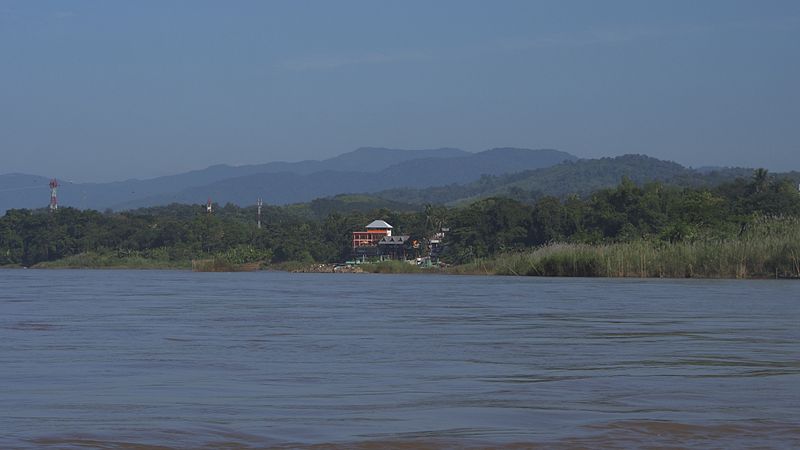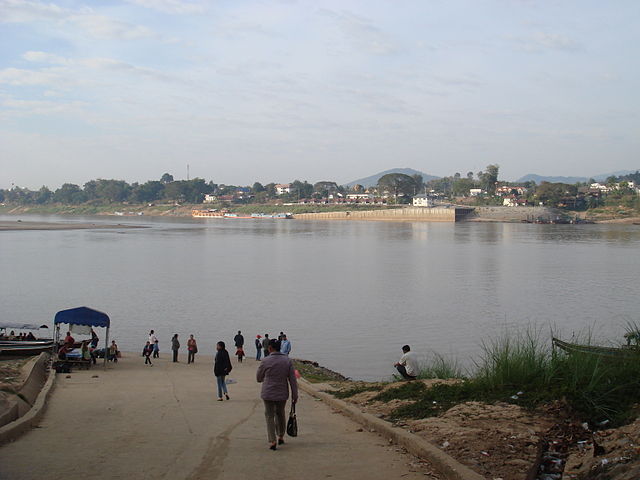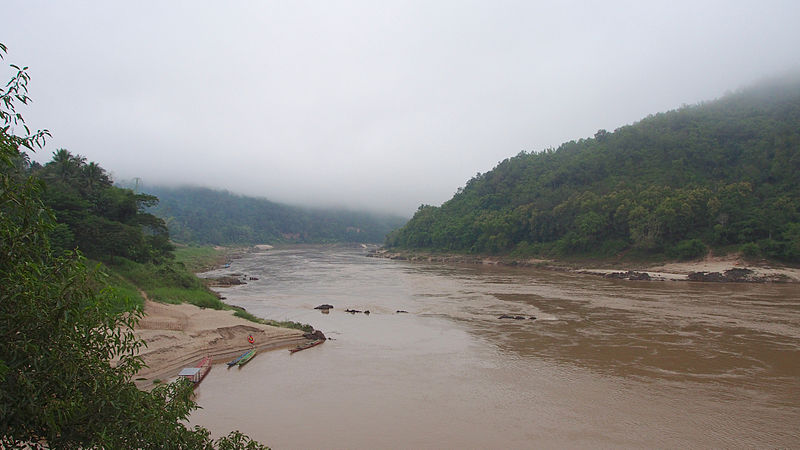
Thammasat University students interested in ASEAN studies, Thailand, Laos, political science, history, law, sociology, and related subjects may find it useful to participate in a free 21 April Zoom webinar on Riverine Border Practices: People’s Everyday Lives on the Thai-Lao Mekong Border.
The event, on Friday, 21 April 2023 at 7pm Bangkok time, is organized by the Hamburg Society for Thai Studies, The University of Hamburg, Germany.
The TU Library collection includes several books about Thai-Lao relations.
The speaker will be Thanachate Wisaijorn, PhD, Head of the Government Department, Faculty of Political Science, Ubon Ratchathani University.
Ajarn Thanachate earned a PhD in International Relations from Loughborough University, the United Kingdom.
His book, out last year, Riverine Border Practices: People’s Everyday Lives on the Thai-Lao Mekong Border, is available to students through the TU Library Interlibrary Loan (ILL) service.
Students are welcome to join the event at this link:
https://www.facebook.com/photo?fbid=10223800172775020&set=a.3377698483999

In an article published last year in the Political Science and Public Administration Journal Faculty of Political Science and Public Administration, Chiang Mai University, Aj. Thanachate noted:
This article argues that International Relations that discusses the issues of Thai-Lao relations is elite-oriented. Employing the historical approach, this article calls for a more multidisciplinary approach that focuses on the issues of the Thai-Lao relations. The discussion on the relat ions of the two states do not have to be limited within International Relations as a discipline but extended to other fields of social sciences such as political science in government, anthropology, sociology, geography and borderland studies. The voices of the peoples on the ground that are engaged with the Thai-Lao relations will be more heard. The research question of this article is what are they ways in which the elites have played out in defining the bilateral relations of Thailand and Laos from 1954 to the present. During the colonial days, the elite’s monopoly over space and time during the colonial days is academically present. This trend continued when Lao People’s Democratic Republic (PDR) was established in 1975 and in 1989 when the Cold War was over. Since then, the voices of the peoples on the grounds are more reflected in the discussion of the Thai-Lao relations, despite still being state-centrically conceptualised. This article argues that the academic inclusion of other fields in social sciences will help support the voices of the peoples on the ground. Accordingly, International Relations as a disciplined that analyses the relations of Thailand and Lao PDR will be able to shed lights on more layers of interaction.

In his thesis, Aj. Thanachate wrote:
Pluralities of people’s crossings of the Mekong Thai-Lao border occur as locals subvert, reject, ignore, and embrace the logic of the national border. From a state-centric point of view, the everyday movements of these people, who rely mainly on a subsistence economy and have their own modes of crossing, are undocumented. I argue that people’s mobility co-exists with the practice of sedentary assumption. The aim of this thesis is to promote theory related to the Third Space in Borderland Studies by the presentation and analysis of people’s pluralities in border-crossings. The borderland area of Khong Chiam (Thailand)-Sanasomboun (Lao PDR) is the location of an in-between state in which spatial negotiations, temporal negotiations, and negotiations of political subjectivities contribute to the nature of mobility in the Third Space. To achieve the objective of this thesis, ethnographic methodology was used over six months of fieldwork from March to September 2016, and included participant observations, interviews and essay-readings that involved 110 participants in the borderland site. People’s movements across the Mekong River border occur daily without formal state approval. From the perspective of the Thai Ban, the river is a lived space in which they catch food and use for transport. However, their interpretation of the Mekong as the state boundary does not completely disappear. This thesis examines the everyday banal pluralities of the Thai Ban’s border-crossings by weaving together the three concepts of space, temporality, and negotiations of political subjectivities. The spatial and temporal negotiations involved in the border-crossings shape and are shaped by this other interpretation of the Mekong as a lived space, and different political subjectivities contribute to the pluralities of the crossings. The presentation of these pluralities of border-crossings adds to Borderland Studies specifically and the social sciences in general in the development of an understanding of the Third Space. As this thesis focuses on people’s mobility at quasi-state checkpoints and in areas along the Mekong Thai-Lao border with no border checkpoints, it is suggested that future research examines the everyday practices of border-crossings at land borders.

His conclusion, in part:
While much of the literature in Borderland Studies focus on the border practices at formal checkpoints, whether located at the edges of states or in the states’ hinterlands, my thesis has presented the analysis of the border at the quasi-state checkpoints which was a specific type at the Mekong Thai-Lao border. Therefore, I propose that this analysis adds a new set of understanding of people’s mobility in the borderland in general. The pluralities of the border-crossings have been highlighted more as spatial negotiations are endlessly negotiated in the everyday mobility of the people in the borderland where quasi-state checkpoints are in operation. This includes the analysis of the meaning people give to the natural terrain used by the state as the border. The findings regarding people’s mobility at the quasi-state checkpoints reveal that while the sedentary assumption is not strictly put into practice by the local administrations, it does not mean that the sedentary practices completely disappears. The local administrations of Ban Dan Khong Chiam and Bane Maysingsamphane are granted authority to run the border-crossings and these are loosely conformed to. Meanwhile, some Thai Ban still cross the border without going through the checkpoints as they have access to boats. People regard the Mekong as territory on the one hand and on the other hand as a lived space where people catch food and use as transport. Meanings of the Mekong float, and relations between signifier and signified changed, depending on contexts. Other possible meanings also exist in the locals’ everyday lives, such as the Mekong as space for spiritual terrain as the residence of the Naga, and such a belief influences decisions to cross.

(All images courtesy of Wikimedia Commons)
